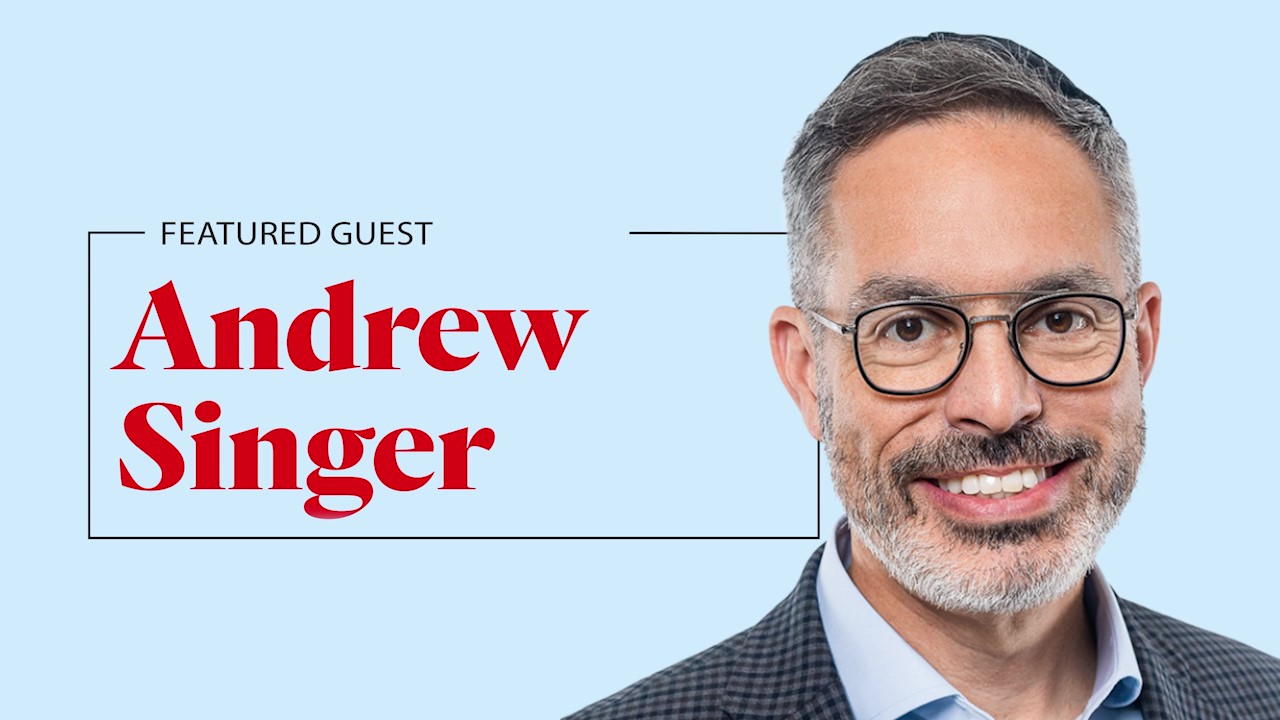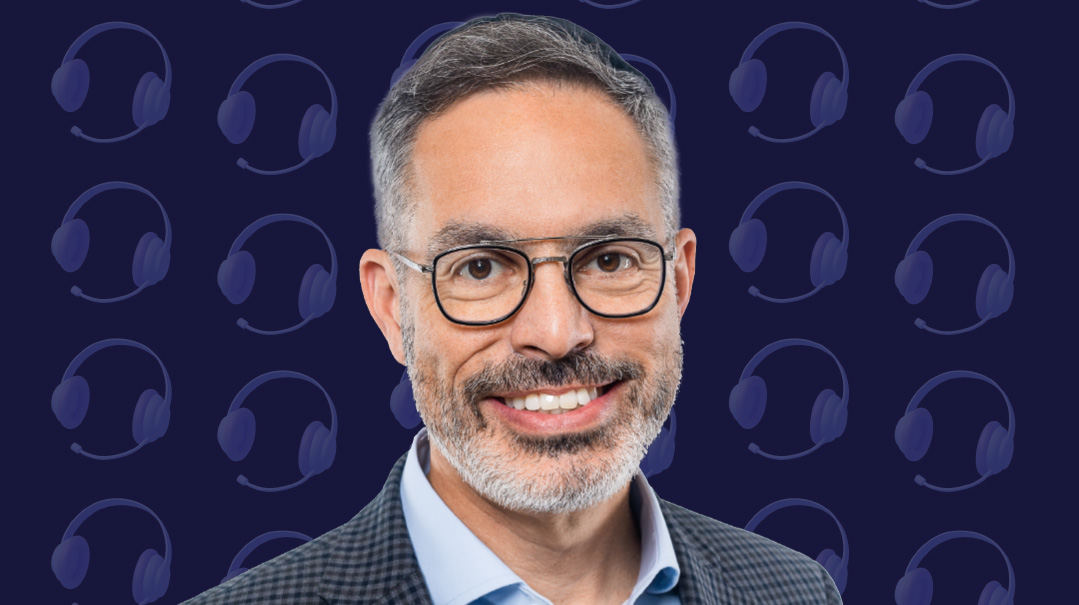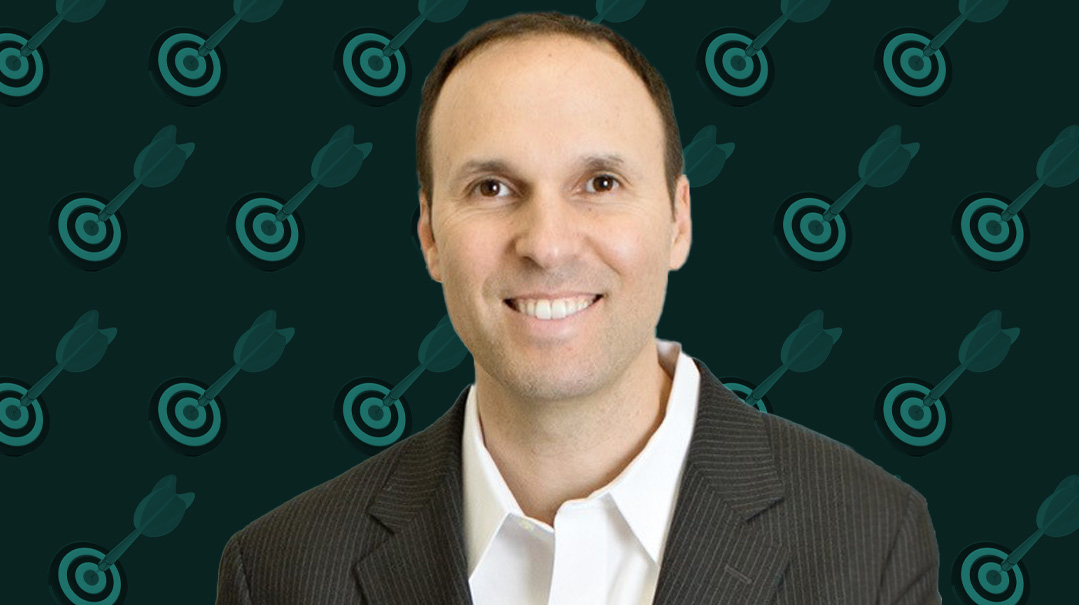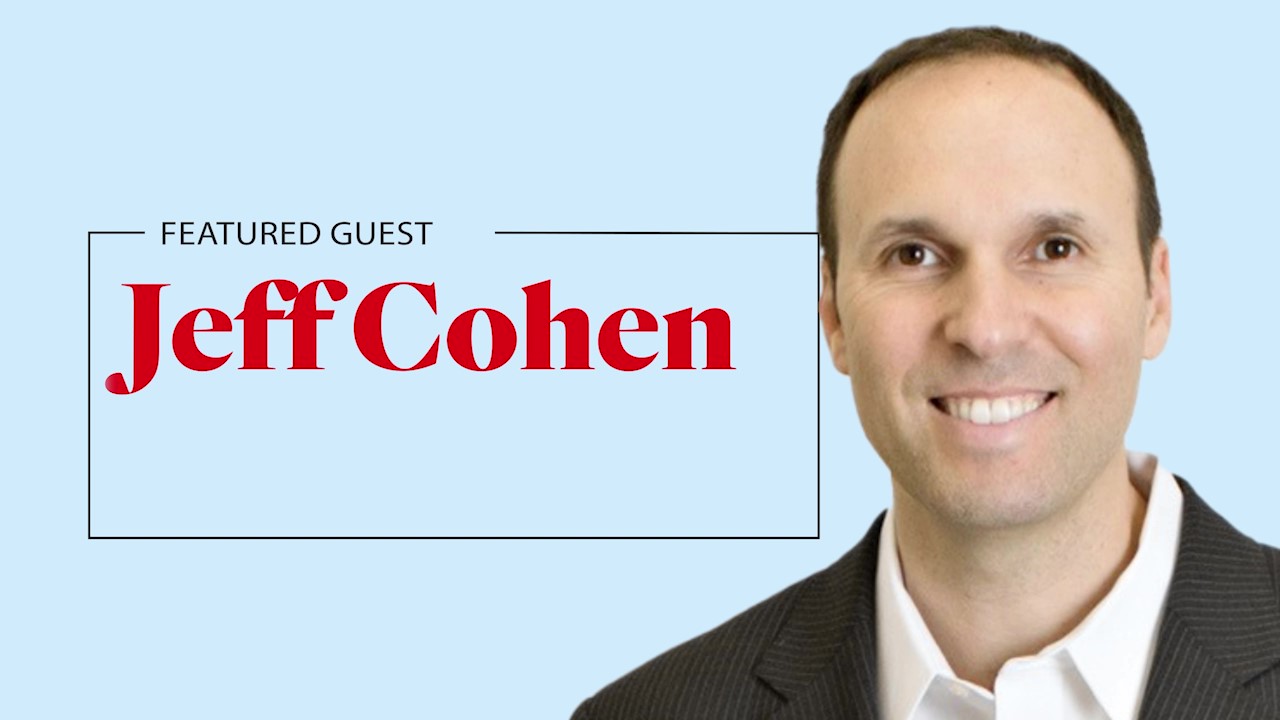Make Every Day a Payday with Aric Zamel
| July 25, 2023The key to building wealth is making sure you pay yourself first
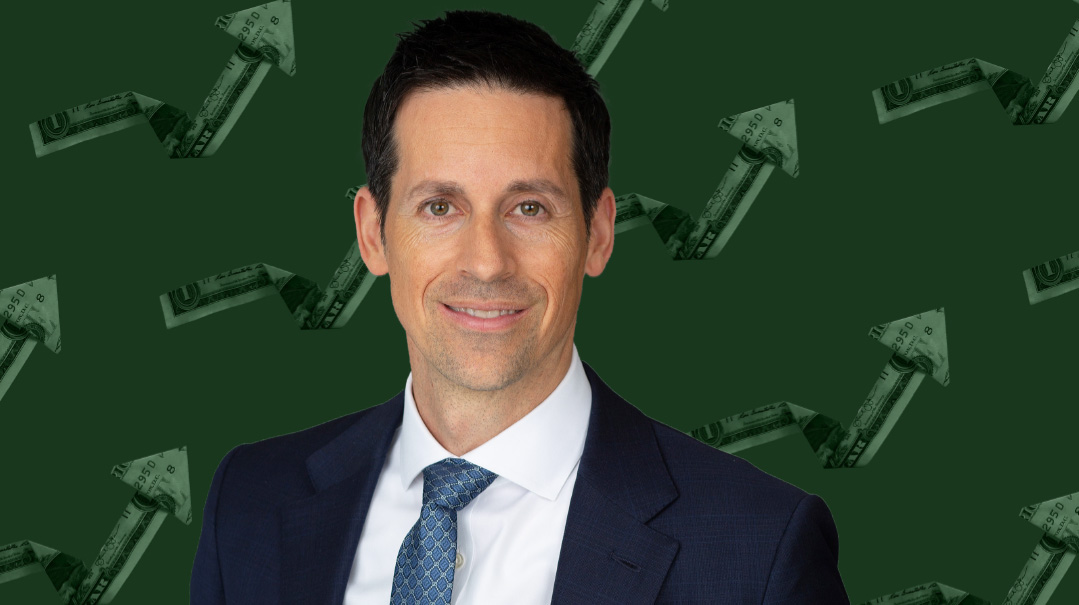
Aric Zamel is a managing director at UBS Financial Services Private Wealth Management in Beverly Hills.
He and his team work exclusively with clients who can invest a minimum of $2 million, and more often with clients who invest substantially more. His guiding principles, however, apply to all income brackets. In his role as a private wealth advisor, he manages his clients’ investment portfolios, helps with the financing of loans, and helps implement their retirement and estate planning as well as asset preservation strategies.
He didn’t always plan to be in the finance industry; actually, he originally set out to be a doctor. But while attending UCLA initially with a pre-med curriculum, he was introduced to the world of business and economics, and “came to love it.” He did an about-turn and graduated magna cum laude, with degrees in both Business Economics and Political Science.
Here he shares with Kosher Money what he’s learned on the job.
Let’s start with the basics. Why is investing so important?
There’s a popular misconception that if you keep money in the bank and add to your savings, that will be enough to build wealth and help ensure a comfortable retirement. What people often don’t realize is that you really can’t build real wealth over time by just keeping money in cash and CDs, and even bonds for that matter.
There’s potentially more risk to keeping money in cash over time than there is to investing it prudently, because over time, the value of cash can be eroded by inflation, and money left in cash will likely have less purchasing power as time goes by.
How can you avoid losing purchasing power on your money? Potentially, by earning a rate of return that can keep up with or exceeds the rate of inflation. You can accomplish that by owning assets that can appreciate over time. And while owning real estate can play an important role in building family wealth, I believe owning stocks and other securities that appreciate over time are equally important, if not more.
The average young person starting out doesn’t usually have the capital needed to start purchasing real estate initially, but he or she can invest in stocks with almost any amount, and with a little discipline can continue to add to those investments on a regular basis. Over time, returns compound and investments can grow into meaningful wealth for a family if invested the right way. Albert Einstein once said that compounding interest is to be regarded as “one of the most important inventions in the history of humankind.” This is because money growing at compounded rates of return can grow exponentially over time.
If you invest $1,000 a month in securities that hypothetically grow at 8 percent a year, that amount can grow to close to $1.5 million over 30 years and almost $3.5 million over 40 years.
Those numbers can grow proportionally if you increase the amount invested, so for example, if you save $2,000 per month, you could grow to almost $3 million after 30 years and nearly $7 million after 40 years. Imagine if you could save that instead of spending it on luxuries you don’t necessarily need. Whatever you can afford to put away now can help you secure a stronger financial future for your family.
Markets can move down in any given year (on average, around three out of ten years are negative historically), but there has never been a 20-year period for US stocks with a negative return.
I once read a story about a UPS employee who started working in the 1920s when he was about 20 years old and never made more than $14,000 a year. But he saved 20 percent of his income annually and put it into his employer’s stock. By the time he got to his late retirement years, that investment was worth around $70 million. And while people should be diversified and this strategy isn’t necessarily advisable to everyone, the message is relevant and speaks to the importance of investing on a systematic basis over long periods of time.
People reading this kind of advice are often stymied. Where should they be finding extra money to invest with?
The answer to that question will vary for each person, depending on family situation, responsibilities, income, etc. But in general, you need to define a certain amount of income that you’re going to set aside to pay yourself each month. You have a portion that goes to taxes, another portion that goes to essentials like rent or a mortgage payment, food, school tuition, etc. But before you start spending on the non-essentials, people should quantify how much they’re willing to set aside for themselves to invest each month.
Financial success often comes from acting on a plan and investing money on a regular basis, and allowing it time to grow. It’s also important to note that reacting emotionally to temporary drops in the market is often a recipe for financial failure, so it’s important to be disciplined whenever investing in capital markets (i.e., stocks).
There’s a saying that you can be rich either by having more than what you need or by needing less than what you have. Spending less and really being conscious of what you’re spending is really important. Bottom line: If you want to have more cash available for investment, you need to control your spending.
There is a famous boxer who made more than anyone else in his industry at the time — nearly half a billion dollars. Yet he went bankrupt from spending beyond his means. So while having a high income is helpful, you really can only build wealth over time by making a conscious effort to invest what you save on a regular basis.
There’s a source for this in the Gemara (Maseches Chullin 84b) that a person should always eat and drink below his means, dress according to his means, and honor his wife and children above his means. It’s okay — even encouraged — to spend on family, but you have to be disciplined enough to always put something away for yourself too.
Secondly, even a small amount goes a long way. A couple who can save $100 a week by eating at home instead of going out for dinner can potentially grow that savings invested at 8 percent and compounding over 40 years to over $1.4 million.
Tell us more about exiting the rat race.
I think an underlying goal or reason why people choose to invest their money is to attain financial freedom. Most want to have enough assets and resources so that their income generated from investments exceeds their expenses, and this in turn enables them to spend more time on what’s most important to them, whether it’s time with family, learning, etc.
After kids finish yeshivah or graduate from university, they’ll often get a job or start their own business. And as their business or career grows, they typically start to have more disposable income. What happens next is important, because as their income grows, they’ll inevitably want to upgrade their lifestyle, which means spending more. And when they spend more, they may need to keep earning more to support that lifestyle.
It’s easy to get carried away and start to equate all of the really non-essential expenditures with what’s really essential, and then savings can go out the window. Most people, believe it or not, actually spend at or above their means, and save almost nothing each year. (When they get older, many realize they haven’t saved enough to retire comfortably, so the cycle continues with continuously needing to work. A high percentage of the world population today, especially in America, is probably stuck in this cycle.)
So the question is: How do you get out of this rat race?
Here are a few key steps that I suggest:
Become financially more intelligent by reading, listening, and learning.
Save each month.
Increase your earnings by making yourself more valuable in your profession.
Invest systematically.
Can you share some common pitfalls investors may face?
Here are the mistakes that I believe people tend to make:
trying to time the market
being undiversified
chasing performance
And here’s what I suggest they should do instead:
Don’t react to the market when it goes down temporarily — stay calm during market turbulence, which always passes, and try to avoid pulling out of stock investments unless you need the cash.
Diversify — people think they should pick a few stocks or sector to invest in, but buying into a broader market or index is usually a safer and more reliable bet. The Gemara (Bava Metzia 42a) explains that a person should divide his money into three: one third in land, one third in business, and one third in hand. Stocks represent ownership in businesses, and while that exact percentage won’t apply to everyone, the lesson is clear on the need to diversify your investments.
Patience — the rule of 72 states that if you take 72 and divide it by the interest rate, you’ll see how long the investment should take to double.
What are some of the key things to keep in mind when evaluating a possible investment opportunity?
Know who you’re investing with and understand what you’re buying.
Don’t keep large amounts of money in a bank, savings, or checking account that is not FDIC insured.
Don’t invest in things you don’t understand, but make sure to educate yourself on basic investing principles.
Be sensitive and conscious of fees because that can bleed into your return over time. This comes into play with any investment.
What would you advise someone who is risk-adverse?
A lot of people say they don’t want to invest because it’s too risky. So let’s define risk — is it a loss of capital, or is it a loss of purchasing power?
If you have money in the bank and in a few years, your dollars don’t buy as much as they did initially, is that a risk? If you see the value of your house fluctuating over time, is that a risk?
Inflation has averaged about 3 percent a year historically. Recently it’s been closer to 9 percent. Here’s the thing — some people retire in their sixties, which means they could be retired for 25 to 30 years, and that’s potentially a long time not to be working.
If inflation is at 3 percent a year, that means consumer prices could rise about 2.5 times during retirement. So every dollar could lose about 60 percent of its purchasing power, and you’ll need to come up with about $2.45 of income to purchase what a dollar buys today.
About 30 years ago, the cost of a postage stamp was about $0.25. Today it’s up to $0.63 — so it’s up about 2.5 times higher over the last 30 years — that gives you a sense of how much prices increase over time. Think about what that means when you’re retired for 30-plus years. Most people can’t really afford having their cash sit idly when prices are going up, especially if they’ve stopped working.
So to me, letting your money sit around and erode is a bigger risk than investing it.
Why are investment advisors so important? Why can’t someone just rely on a trading app?
A good financial advisor or wealth manager can add value in several areas, including overseeing and managing your investments, setting up tax qualified accounts to mitigate taxes, and keeping your overall finances organized. Many people are also in need of estate planning and asset preservation, and an advisor can play a key role in addressing these areas. People who have in excess of a few million dollars liquid should make it a priority to find both a good financial advisor and CPA.
That said, an important determinant of financial success when investing isn’t necessarily the investments you choose or even timing, but rather investment behavior — making sure you don’t make the big mistake of selling when things go down, and they will go down at some point or another, something that’s quite normal in the investment world of stocks and bonds. That factor is largely addressed by having someone else managing your investments rather than doing it by yourself — because it takes the emotions out of investing.
People are naturally inclined to react emotionally to losses more than gains, and when you’re investing on your own through an app and you see prices headed lower and quickly, many people are going to hit the sell button at exactly the time when you’re supposed to be doing the opposite. Even if you’re not an emotional person, you’re going to feel something when you’re checking and relying on your trading app daily and watching the market go through one of its inevitable hiccups that we’ve seen so many times over the years. An advisor can provide the discipline to help ensure you stay on course with your long-term plan, and avoid the often-permanent loss caused by reacting to the market at the wrong time.
In just about every other business, when something goes on sale, people run to buy. When stocks go on sale, people tend to want to run away, because they think prices will keep falling. But historically, and we have around 100-plus years of tracking the market, prices will fall on average by over 20 percent every six to eight years, and fall over 10 percent every one to two years, before recovering and ultimately making new highs. As long as the value of goods and services continually increases as it does in a normally functioning economy, market prices eventually rise over time.
That’s why systematic investing is so important. If you’re investing every month, then you start to view every drop opportunistically due to dollar cost averaging — periodic investing in securities despite fluctuating market conditions. (However, you should carefully consider your financial ability to invest through periods of low prices. There can be no assurance that dollar cost averaging will reduce your investment cost, result in a profit, or protect you against losses in a declining market.)
People react to losses emotionally. When the market goes down, even if it’s down a little bit, you get anxious. That’s normal behavior. That’s how people are wired.
On trading apps, when you don’t have an advisor overseeing every decision, it’s easy to go in and out, often at the wrong time, and you lose out on the real value of what your returns could have been.
How often do you recommend that people touch base with their financial advisor?
It depends on the person and the complexity of his wealth. For some, a quarterly call or email is enough. For others, we’re in touch every other day or every week. At minimum, you should review your accounts and your portfolio at least once a year. And I think it’s always good to check in at least quarterly.
What do you advise people who wonder if they should invest with family?
It depends on the type of investment and the experience of that family member, among other things. Just make sure that you understand what you’re investing in before you commit.
People are concerned about today’s uncertain economic climate. There’s even been speculation that we’re heading toward a repeat of the 2008 crash. What’s your take?
The 2008 crisis was very different from what we’re seeing today. The financial sector was much more highly leveraged at that time, with significantly higher exposure to the mortgage market, which ended up being toxic on bank balance sheets. Today most of the big banks are well capitalized, with much tighter risk control measures in place.
Earlier this year, there was a crisis of confidence with regard to smaller regional banks, and we saw large deposit flows moving from smaller banks to bigger banks. Still, I don’t believe that presents a systematic risk to the financial markets at this time; in fact, large amounts of money actually flowed into larger banks during that period.
Inflation and interest rates have become the focus, and there’s a concern that high rates will choke off the economy. Yet the markets are up year-to-date, partially because inflation has been coming down and the economy is still growing, thanks in large part to a strong US labor market. Rather than a financial crisis, I believe we’re seeing an economic cycle play out.
People always feel like “this time is different.” But the reality is that markets go through cycles and they generally rise over time as the economy is growing. We live in a country that has had the greatest economic success story of any nation in the world. And given the ingenuity and the people that live here in America, I believe confidently that’s going to continue. So as much as it may feel that the current crisis of the day is different, it’s really not that different after all.
If we do see another recession or major downturn anytime soon, what should people keep in mind?
Invest on a recurring basis so you get to take advantage of the downturns, and don’t try to time the market, because even the world’s smartest investors can’t time the market accurately over time. If the market takes a dip, you only need to be right once — that the market will come out of its drop and rise over time. If you sell, you need to be right twice — that the market actually keeps going down, and that when you buy back in, you’re not buying at a higher price than when you sold.
I remember when I first started in this business, I went to Manhattan for my first week of training as a financial advisor, which just happened to be the week of September 11, 2001. I got to the training floor, and everyone was just staring out the window at the North Tower of the World Trade Center, which was on fire (we later learned what happened). As we were watching, we saw the second plane crash into the South Tower and were evacuated shortly after back to the safety of our hotel rooms.
When I went back to L.A. a week later, I was making phone calls to try to get new prospective clients. Meanwhile, the market had just fallen around 7 percent, and would end up dropping down to 11 percent over the next few days. Someone on the phone asked me, “Didn’t you hear what happened in New York last week? I would never invest in anything.” Then — click — he hung up the phone.
Back then, the S&P was around 1000. Today, even after quite a few meaningful dips, it’s around 4400 (and that doesn’t include dividends reinvested). And while it’s sometimes painful to see investments go down temporarily, it’s important to put things into perspective and avoid making an emotional decision to sell when you don’t need the funds that day. Within the financial world, perhaps the only thing more painful than watching prices drop is selling when things are low, only to watch the market rise back up without you.
I have a chart in my office that shows every recession along with the market performance going back to World War II. Another chart shows every dip of 5 percent or more since the 2008-09 financial crisis. I like to look at these charts whenever the market gets choppy, because it reminds me that volatility, however dramatic it may feel at the time, is always temporary, while long-term up trends are generally permanent over time.
You mentioned that someone who’d like to leave over a large estate as an inheritance needs to plan appropriately. Can you elaborate?
When someone passes away, he is allowed to bequeath $12.92 million (in 2023) per spouse to his kids without being assessed a federal estate tax. Anything above that amount is taxed at 40 percent and is generally due within nine months. For example, if a couple’s estate is worth $100 million, and they haven’t done any estate planning, their kids will likely owe close to $30 million in federal taxes on the estate (note some states also assess their own estate tax in addition to the federal tax).
A problem is that people are not usually that liquid, which forces the kids to sell assets to pay for the taxes. An advisor can help a family plan ahead by setting up irrevocable trusts and charitable accounts, which can greatly mitigate that tax liability. If you don’t prepare properly, keep in mind that your kids will likely have to settle the bill and liquidate assets you may have never intended them to sell.
You said it’s important to keep the whole family in the loop. What did you mean?
It’s important to have all relevant family members involved in your financial planning process. From an investment standpoint, you can have one person as the main point person, but anyone who may benefit from the investments should be involved and know what’s going on at some point.
You spoke about ensuring that your money is safely stored in a reliable bank. What about the FDIC insurance of up to $250,000? What does the average investor need to know about this?
The FDIC insures up to $250,000, but there are ways to increase the amount of coverage by having multiple owners and/or beneficiaries. Once you max out your FDIC insurance, you’re at risk of losing those funds if the bank were to go out of business.
It’s usually better to hold larger balances in a brokerage account where you can own securities, such as T Bills and money market funds, which are not tied to the bank balance sheet in the event of a bank failure. Today, the rates on T Bills, which are also state tax exempt, are usually higher than what banks are paying anyway.
If there’s one thing you take from this article…
It’s to determine how much of your paycheck you’re going to keep for yourself and your family before you spend a single dollar on everything else. Given that one sets aside 10 percent of net income to tzedekah, you should also be paying yourself (i.e., saving and investing) at least that amount if not more each month.
The quotes I often think about:
On discipline: “All financial success comes from acting on a plan. A lot of financial failure comes from reacting to the market.”
—Nick Murray
On emotions: “The investor’s chief problem — even his worst enemy — is likely to be himself.”
—Benjamin Graham
On automation: “The best way to save is when you don’t see the money in the first place.”
—Burton Malkiel
Financial freedom is really defined as having a passive income that exceeds one’s spending.
Investing involves seeing your balances fluctuate, but to sit aside and opt for total stability means you’re embracing today’s comfort and safety at the risk of losing purchasing power in the future. It’s much smarter to embrace a little bit of volatility by investing today in order to help ensure comfort and financial stability down the line.
Never sell unless you need cash. Markets tend to react to news first and think later. Investors need to always put thinking first and avoid reacting to the market.
Everyone has setbacks at one time or another — it’s how you deal with them that ultimately determines your success.
No matter what the crisis of the day is, the world (and capital markets) always seems to carry on and things generally will improve over time.
You don’t have to earn millions a year to save for your future, but what you do have to do is set formal written goals, make them date- and dollar-specific, and then invest on a consistent basis.
As people make more money, they upgrade their lifestyles. And that’s a trap. As you make more money, focus on growing your family’s long-term wealth instead.
Disclaimer: The information contained in this article is not a solicitation to purchase or sell investments, and is not intended to provide individually tailored investment advice. The views expressed herein are those of the author and may not necessarily reflect the views of UBS Financial Services Inc.
Watch the bonus podcast episode exclusively at Mishpacha.com!
Or email podcasts@mishpacha.com for a download
(Originally featured in Mishpacha, Issue 971)
Oops! We could not locate your form.


